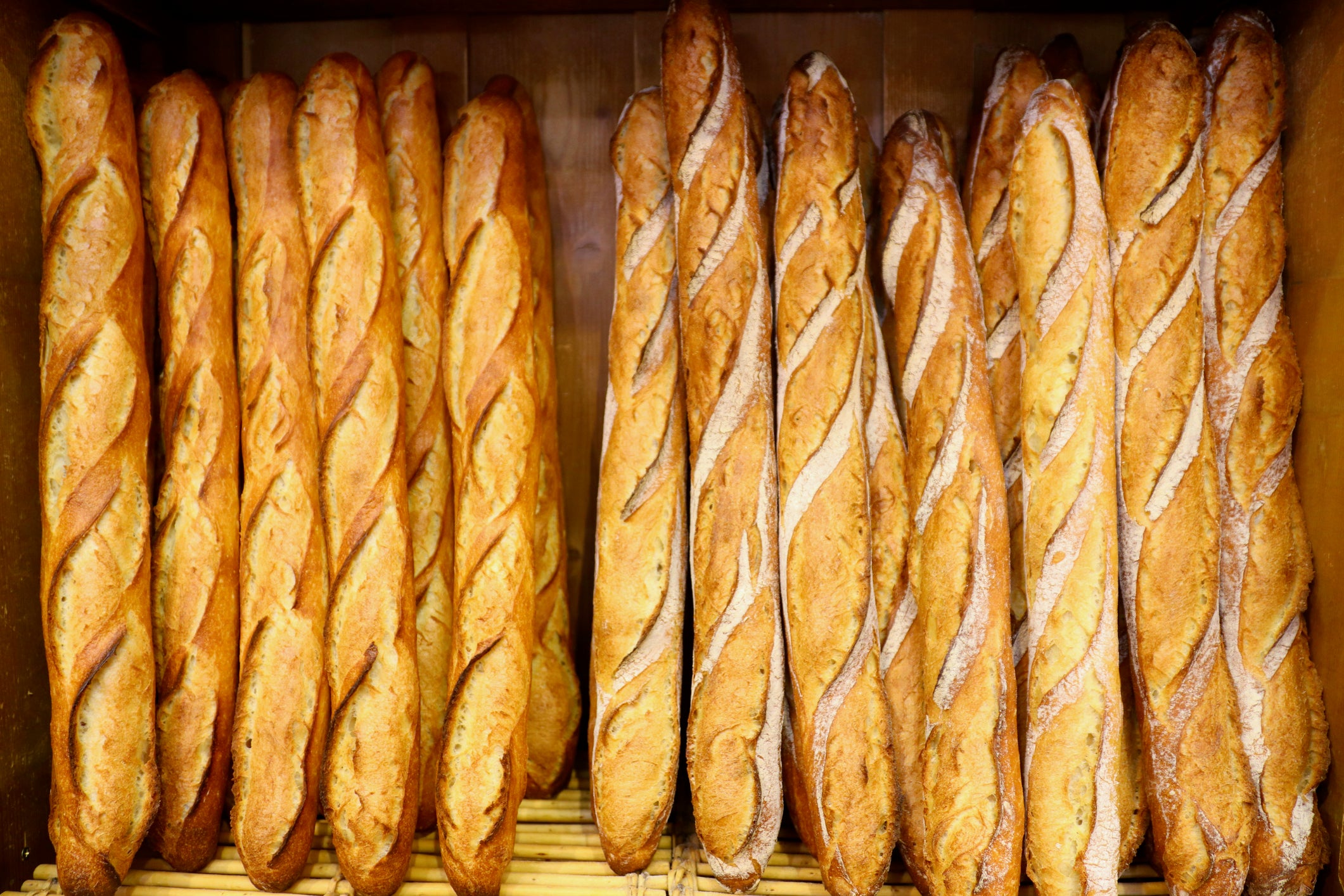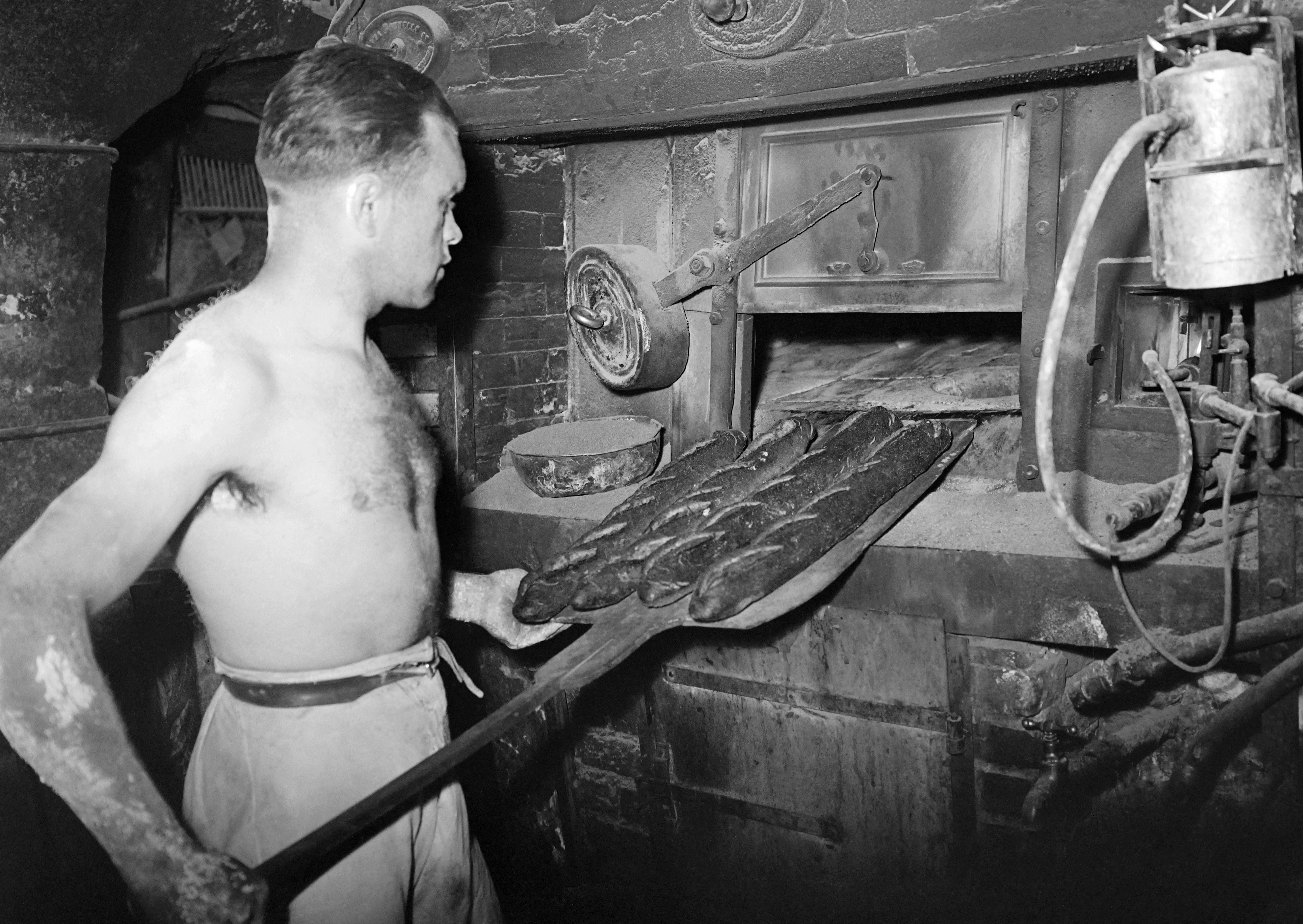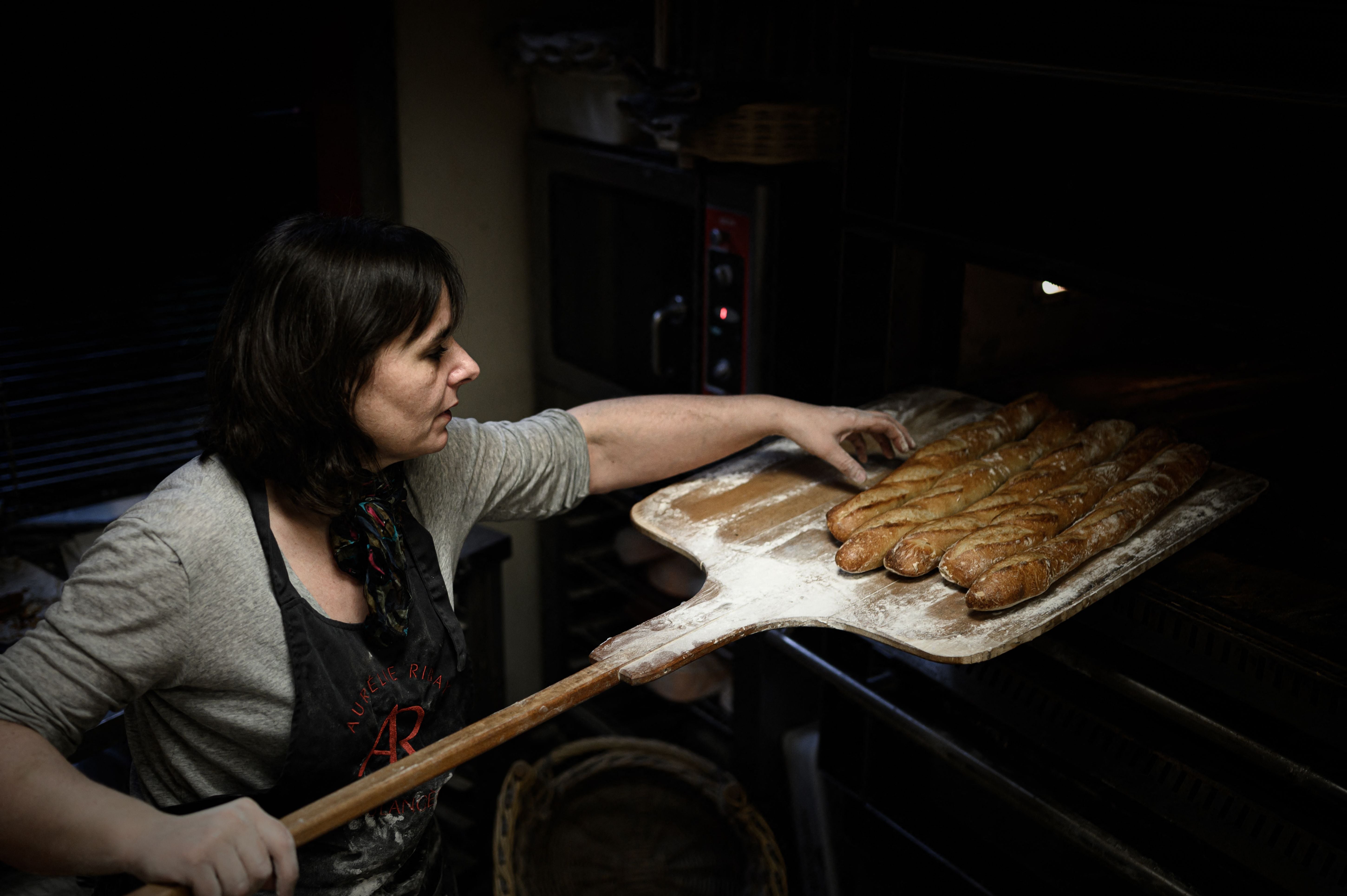French baguette given Unesco heritage status
Famously-elongated bread wins spot on list of Intangible Cultural Heritage

Your support helps us to tell the story
From reproductive rights to climate change to Big Tech, The Independent is on the ground when the story is developing. Whether it's investigating the financials of Elon Musk's pro-Trump PAC or producing our latest documentary, 'The A Word', which shines a light on the American women fighting for reproductive rights, we know how important it is to parse out the facts from the messaging.
At such a critical moment in US history, we need reporters on the ground. Your donation allows us to keep sending journalists to speak to both sides of the story.
The Independent is trusted by Americans across the entire political spectrum. And unlike many other quality news outlets, we choose not to lock Americans out of our reporting and analysis with paywalls. We believe quality journalism should be available to everyone, paid for by those who can afford it.
Your support makes all the difference.The French baguette has been given protected cultural status.
France’s staple bread, one of the globally recognised icons of the country, won over competition to be added to the UN heritage body Unesco’s list of Intangible Cultural Heritage.
Inclusion on the list safeguards the cultural practice of making baguettes, or as Unesco puts it: the “artisanal know-how and culture of baguette bread”.
The origins of the baton-shaped bread are shrouded in myth. Some say Napoleon Bonaparte devised the elongated shape to make it easier for his troops to carry as they conquered Europe, others say the bread was truly invented in the 1830s by an Austrian baker called August Zang.
Irrefutably, the bread has been central to French cuisine for more than one century and remains extremely popular in France and elsewhere, with a typical baguette costing around €1 (£0.87) in Paris.
Although baguette consumption has declined over the last century, France still makes around 16 million of the loaves per day – 6 billion baguettes a year – according to a 2019 Fiducial estimate.
Unesco said it was protecting the method of baking baguettes, one which forms the “crisp crust and chewy texture” that “result in a specific sensory experience”.
Made only with flour, water, salt and yeast, baguette dough must rest 15 to 20 hours at a temperature between 4-6C (39- 43F), according to the French Bakers Confederation, which fights to protect its market from industrial bakeries.

“The baguette is flour, water, salt, yeast and the know-how of the craftsman,” Dominique Anract, president of the French Bakers Confederation, said in a press release.
The baguette faced off other cultural food and drink traditions such as Tunisian harissa and Serbian plum alcohol to win over voters for this year’s Unesco list.
Mr Anract was given two minutes to make his case to a Unesco panel. He said ahead of the vote that he would highlight cultural traditions surrounding the baguette along with the baking practice.
“Going to get the bread is the first errand you give a child to do,” he said.

Other food and drink staples to make the Unesco list this year included traditional Chinese tea and Pyongyang raengmyon, a customary North Korean noodle dish.
Besides cuisine, the list, which began in 2003 and includes around 600 traditions from over 130 countries, includes dances, festivals and religious beliefs.
This year saw Kun Lbokator, a traditional form of Cambodian martial arts, added alongside Furyu-odori, a Japanese folk ritual believed to ward off evil spirits.



Join our commenting forum
Join thought-provoking conversations, follow other Independent readers and see their replies
Comments